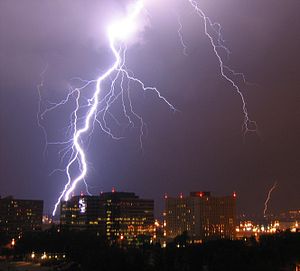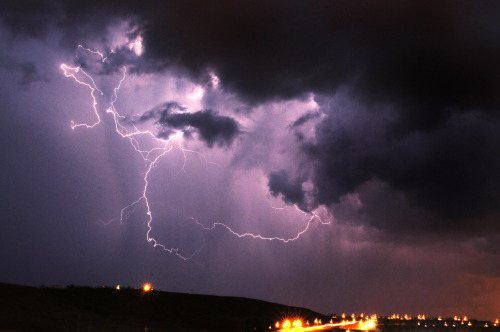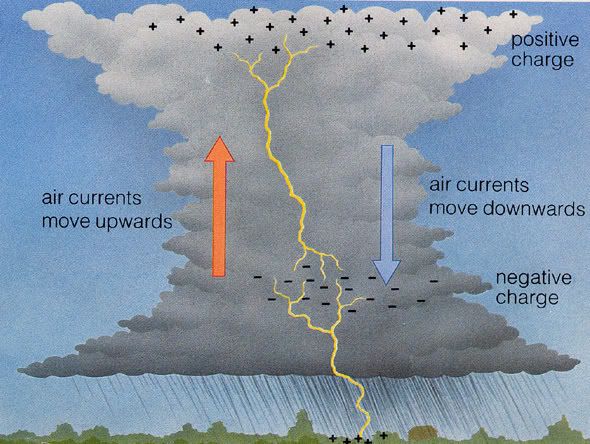
Lightning occurs occasionally throughout the year in Singapore.
While it is unlikely that you might be the chosen one to be struck directly by lightning, it is good to be cautious and pass these tips to your friends and loved ones. Lower the risk! You might just save their lives by reducing their risk and exposure to Mother Nature's Bolts.
Seems like the Singapore average number of deaths by lightning is between 1 to 3 a year. With all these extreme weather changes going on in our little island, it is good to take note.
Notable News on victims and lightning occurrences:
------------------------------------------------------------------------------------------
Notable News on victims and lightning occurrences:
News 1:
Lightning kills man, severely injures another off Punggol|
News 2:
Singapore has one of the highest rate of lightning activity in the world.
http://www.weather.gov.sg/wip/web/home/lightning
"Lying near the Equator, the weather is hot and humid almost all year round. Conditions are favourable for the development of lightning producing thunderstorm clouds. An average of 171 thunderstorm days (days when thunder is heard) are recorded annually in Singapore."
"More thunderstorm days are observed during the Inter-Monsoon months of April and May and October and November. The months of January and February in the later phase of the Northeast monsoon experience the least number of thunderstorm days.
Thunderstorms tend to occur between 2 pm and 6 pm in the afternoon as diurnal heating and convection play an important role in thunderstorm development."
News 3:
Lightning kills Chinese soccer player in Singapore
News 4:
Canoeist killed by lightning
News 5:
Here's why S'pore's one of the lightning capitals of the world
"Singapore experiences 0.35 lightning deaths per million people each year on average. Britain experiences 0.2 lightning deaths per million, while the United States has 0.6 lightning deaths per million."
News 6.
What happens when lightning strikes an airplane?
http://www.scientificamerican.com/article.cfm?id=what-happens-when-lightni
"Although passengers and crew may see a flash and hear a loud noise if lightning strikes their plane, nothing serious should happen because of the careful lightning protection engineered into the aircraft and its sensitive components. Initially, the lightning will attach to an extremity such as the nose or wing tip. The airplane then flies through the lightning flash, which reattaches itself to the fuselage at other locations while the airplane is in the electric "circuit" between the cloud regions of opposite polarity. The current will travel through the conductive exterior skin and structures of the aircraft and exit off some other extremity, such as the tail. Pilots occasionally report temporary flickering of lights or short-lived interference with instruments."
"Although passengers and crew may see a flash and hear a loud noise if lightning strikes their plane, nothing serious should happen because of the careful lightning protection engineered into the aircraft and its sensitive components. Initially, the lightning will attach to an extremity such as the nose or wing tip. The airplane then flies through the lightning flash, which reattaches itself to the fuselage at other locations while the airplane is in the electric "circuit" between the cloud regions of opposite polarity. The current will travel through the conductive exterior skin and structures of the aircraft and exit off some other extremity, such as the tail. Pilots occasionally report temporary flickering of lights or short-lived interference with instruments."
News 7.
Merlion Struck by Lightning in Singapore
http://www.asiaone.com/Travel/News/Story/A1Story20090228-125271.html
------------------------------------------------------------------------------------------
As skies start to darken and you hear the roars of thunder, take note of these tips to avoid being hit by Lightning.
------------------------------------------------------------------------------------------
Tip 1.Stay away from Objects made of Metal.
Such as UMBRELLAS, GOLF CLUBS or BICYCLES, FENCES, PIPES & RAILS.
Lightning is electricity and metal is a conductor of electricity.
If you'r human, and most of the human body is made of water,
And water is a conductor of electricity, which makes you a good conductor of electricity.
Tip 2.Avoid being the tallest object in open areas.
Such as car parks, soccer fields, parks and large open spaces.
Do not attempt to scale rooftops, Mount Faber and be swimming at the top of Marina Bay Sands.
Tip 3. Stay Away From Water.
Be it the pool, sea or a flooded area.
Water is also an excellent conductor of electricity.
Tip 4. Avoid standing under tall objects like trees or towers.
The tall objects are easy targets to be hit by lightning and if you're standing near or under them, you're likely to be struck too by pure proximity.
The tall objects are easy targets to be hit by lightning and if you're standing near or under them, you're likely to be struck too by pure proximity.
Tip 5. Avoid Flying Kites.
The kite in the sky will be the most likely target in the eye of a storm.
Tip 6. If you're indoors, avoid taking a shower or bath.
Water is also an excellent conductor of electricity.
Tip 7. Wearing rubber shoes does not prevent you from being a target.
Despite the insulating properties of rubber that protects you from lightning, air is also an insulator.
In comparison to a couple of inches of rubber, insulating air wins hands down.
Tip 8. Seek shelter in a building or a vehicle.
Tip 9. If you have no choice and you're stuck in the open, squat down and place your head between your knees. Avoid lying flat. Making yourself as tiny as possible.
Tip 10. If you have no choice and have to hide in a forest, do it under a group of small trees.
------------------------------------------------------------------------------------------
Some basic facts about Lightning:
------------------------------------------------------------------------------------------
Source: http://www.kbtx.com/news/blogs/weather/Severe_Weather_Awareness_Week__196070941.html#.UZJX77VkO84
Source: http://www.kbtx.com/news/blogs/weather/Severe_Weather_Awareness_Week__196070941.html#.UZJX77VkO84
1. Lightning is kinda like Electricity in the air that travels.
2. It is formed when there is a charge imbalance between the cloud and the ground.
3. It travels between earth and the clouds.
4. Lightning chooses to move down the easiest path.
Which is why lightning commonly strikes the tallest object.
Which is why lightning commonly strikes the tallest object.
More On Lightning in Singapore at:
------------------------------------------------------------------------------------------
Effects of being struck by Lightning:
Effects of being struck by Lightning:
"Lightning fatalities are probably under reported by 30 percent. About 10 percent of the people struck by lightning are killed, leaving the other 90 percent with various degrees of disability. The primary cause of death from lightning is cardiac arrest.
Unlike high voltage electrical injuries with which massive internal tissue damage may occur, lightning seldom causes substantial burns. In fact, most lightning burns are caused by objects such as rainwater, sweat, metal coins and necklaces being heated up and causing the burn.
Lightning tends to cause nervous system injury and may affect any or all parts of the nervous system. If the brain is affected, the result is often difficulty with short term memory. Coding new information, accessing old information, slower reaction time, intense headaches, ringing in the ears, depression, seizures and personality changes can occur among many other immediate symptoms and long term symptoms to those who have been struck by lightning. An organization which has been of tremendous help to survivors, their families, their physicians and other professionals is lightning strike and Electric Shock Survivors International."



.jpg)




















0 comments:
Post a Comment